第33章
But it may also be said, "Granting fully that you are right, that, as woman's old fields of labour slip from her, she must grasp the new, or must become wholly dependent on her sexual function alone, all the other elements of human nature in her becoming atrophied and arrested through lack of exercise: and, granting that her evolution being arrested, the evolution of the whole race will be also arrested in her person: granting all this to the full, and allowing that the bulk of human labour tends to become more and more intellectual and less and less purely mechanical, as perfected machinery takes the place of crude human exertion; and that therefore if woman is to be saved from degeneration and parasitism, and the body of humanity from arrest, she must receive a training which will cultivate all the intellectual and all the physical faculties with which she is endowed, and be allowed freely to employ them; nevertheless, would it not be possible, and perhaps be well, that a dividing line of some kind should be drawn between the occupations of men and of women? Would it not, for example, be possible that woman should retain agriculture, textile manufacture, trade, domestic management, the education of youth, and medicine, in addition to child-bearing, as her exclusive fields of toil;while, to the male, should be left the study of abstract science, law and war, and statecraft; as of old, man took war and the chase, and woman absorbed the further labours of life? Why should there not be again a fair and even division in the field of social labour?"Superficially, this suggestion appears rational, having at least this to recommend it, that it appears to harmonise with the course of human evolution in the past; but closely examined, it will, we think, be found to have no practical or scientific basis, and to be out of harmony with the conditions of modern life.In ancient and primitive societies, the mere larger size and muscular strength of man, and woman's incessant physical activity in child-bearing and suckling and rearing the young, made almost inevitable a certain sexual division of labour in almost all countries, save perhaps in ancient Egypt.(The division of labour between the sexes in Ancient Egypt and other exceptional countries, is a matter of much interest, which cannot here be entered on.) Woman naturally took the heavy agricultural and domestic labours, which were yet more consistent with the continual dependence of infant life on her own, than those of man in war and the chase.There was nothing artificial in such a division; it threw the heaviest burden of the most wearying and unexciting forms of social labour on woman, but under it both sexes laboured in a manner essential to the existence of society, and each transmitted to the other, through inheritance, the fruit of its slowly expanding and always exerted powers;and the race progressed.
Individual women might sometimes, and even often, become the warrior chief of a tribe; the King of Ashantee might train his terrible regiment of females; and men might now and again plant and weave for their children:
but in the main, and in most societies, the division of labour was just, natural, beneficial; and it was inevitable that such a division should take place.Were today a band of civilised men, women, and infants thrown down absolutely naked and defenceless in some desert, and cut off hopelessly from all external civilised life, undoubtedly very much the old division of labour would, at least for a time, reassert itself; men would look about for stones and sticks with which to make weapons to repel wild beasts and enemies, and would go a-hunting meat and fighting savage enemies and tend the beasts when tamed: (The young captured animals would probably be tamed and reared by the women.) women would suckle their children, cook the meat men brought, build shelters, look for roots and if possible cultivate them;there certainly would be no parasite in the society; the woman who refused to labour for her offspring, and the man who refused to hunt or defend society, would not be supported by their fellows, would soon be extinguished by want.As wild beasts were extinguished and others tamed and the materials for war improved, fewer men would be needed for hunting and war; then they would remain at home and aid in building and planting;many women would retire into the house to perfect domestic toil and handicrafts, and on a small scale the common ancient evolution of society would probably practically repeat itself.But for the present, we see no such natural and spontaneous division of labour based on natural sexual distinctions in the new fields of intellectual or delicately skilled manual labour, which are taking the place of the old.